by Judy Zeck
A version of this article first appeared in the Middletown Valley Citizen.
There are some years in history with more than their share of momentous events. In 1918, nations around the globe were in the midst what was then called the "war to end all wars." At the same time, a deadly pandemic was sweeping the world. The two fed off each other, with the movement of troops contributing to the rapid spread of the disease. The pandemic lasted one deadly year from January 1918 to January 1919. Scientists still study the virus to understand why it was so contagious and so often fatal. It reportedly infected 600 million people worldwide, from remote Pacific islands to deepest arctic regions, killing an estimated 50 million.
The Middletown Valley was not immune from the impact of the war, and it was certainly not immune from the influenza pandemic. The local effects of these two momentous events can be traced through the diary of a 14-year-old girl named Carlotta A. Hays.
To this day, Carlotta is remembered by many in the Middletown area. She taught in Frederick County Public Schools for 50 years, with most of her career as a first and second grade teacher in Middletown. In 1918, Carlotta was a young teen, living in Ellerton with her family. She began keeping a diary in May of that year. There is a lot to learn about early 20th Century life in the upper Middletown Valley from her writing.
Carlotta Hays was born November 20, 1903, on Brandenburg Hollow Road near Wolfsville, the oldest child of Milton George Urner Hays and Josephine Farsht Hays. By May 1918, when Carlotta began keeping her diaries, she had four younger siblings: Herbert, aged 12; Elizabeth, aged 10; Genevieve aged 8; and the baby, Harriet, who was not yet a year old. There are actually two diaries: the first runs from May 4, 1918, through the end of the year, and the second covers January 1, 1919, through December 1919.
Milton Hays, Carlotta’s father, a carpenter working for a home building company in Hagerstown, left Ellerton on Sunday nights to take the trolley to where he was employed. He spent his work weeks in Hagerstown then returned home Saturday evenings to spend Sunday with the family. This meant that the diary revolves primarily around Carlotta’s mother, Josephine, and the five children.
Like many diaries of the time, the entries are terse but regular. Carlotta practiced ruila dies sine linea (no day without a line). As will be seen, Carlotta began each entry with the weather, then reported daily activities. There are few feelings recorded or philosophical musings, only a recitation of what the family did each day. Even so, the diaries provide a unique view of life in a time when most people's worlds were more limited. There were few cars, no television, and certainly no internet, but their days were full of work, school, family, and friends.
There was a certain rhythm to life, then. Children were integral to the economic success of the family and participated in the daily work around the house, including washing, ironing, cleaning, sewing, gardening, tending the livestock, and picking berries. Carlotta never used the word "chore" -- these were just things that had to be done and everyone pitched in. There is no sense of drudgery in the diary. Additionally, the children made money through several different enterprises. Elizabeth and Genevieve went into Myersville, a distance of two miles each way, every week to sell Grit newspapers; Herbert also had a newspaper route on weekends and kept chickens and guineas. The children picked berries for pay and did other tasks to make money. School was part of their life but was often secondary to things that needed to be done at home. There were many fine times, too, including picnics, visiting neighbors, and vacations to Wolfsville to visit their grandmother.
As an aside, Grit was a weekly newspaper that was popular in the rural United States during much of the 20th Century. It ran the subtitle “America’s Greatest Family Newspaper.” In the early 1930s, Grit targeted small towns and rural families with 14 print pages plus a fictional supplement. By 1932, it had a circulation of 425,000 in 48 states with 83 percent of its circulation in towns comprised of fewer than 10,000 people.
The newspaper espoused the following philosophy, "Keep Grit from being pessimistic; avoid printing those things which distort the minds of readers or make them feel at odds with the world; avoid showing the wrong side of things or making people feel discontented; do nothing that will encourage fear, worry, or temptation.... Wherever possible, suggest peace and good will toward men; give our readers courage and strength for their daily tasks; put happy thoughts, cheer, and contentment into their hearts."
Grit has evolved since the early 1900s and is now a slick monthly magazine still focusing on rural life and small farm living.
Carlotta doesn’t say why she started her diary, so we are left to speculate. As the diary progresses, Carlotta refers to her siblings by their first initials: G. for Genevieve, H. for Herbert, and E . for Elizabeth. It should also be noted that as the diary progresses, many people are mentioned, some by their first name, some by their last, and some by both, with very few clues as to who they were. The author hopes to conduct further research on the Hays's friends and neighbors in the future.
The diary entries have been lightly edited for readability.
Saturday May 4, 1918. Today was a fair cool day. Herbert brought the pigs home from Mrs. Harp’s. The four weighed 113 pounds. Mrs. Marker spent the afternoon with us. Herbert went on his paper route and did not return, stayed with Glenn. Father arrived home early and brought us candy as usual.
Sunday, May 5, 1918. Bright sunshine and warm. At half-past one this morning, the pigs decided to go home to mother and so they went. Elizabeth and I went to Sunday School this morning. Elizabeth and Genevieve divided the afternoon with Lizzie and Harp’s girls. Father went back to town.
Monday, May 6, 1918. Beautiful spring day. Elizabeth and I went to school. Herbert stayed home to bring the pigs home again. Mother washed and in the evening we all helped to make a square of garden. We were so tired that mother and I went to bed as soon as dark, but the fairies came and washed the dishes and cleaned up the kitchen.
Thursday, May 16, 1918. Clear and cool. We planted the patch early in the morning and then I went to school. Mother washed for the second time this week, and she also churned. Mother set a leghorn hen with eleven guinea eggs and three duck eggs, also another one with twelve duck eggs.
Friday, May 17, 1918. Fair weather and rather warm. Our teacher Miss Burhl took all our pictures today. We had Literary today at school. I had a composition on Ducks. We cleaned up the parlor after school. This is rather late for house cleaning, but we were waiting till I was home to help. Lizzie and her son Eldin spent the evening with us.
Thursday, May 23, 1918. Fair and very warm. Seven ducklings hatched out today. Mother sent off a Larkin's order which amounted to $28.88. Madeline Stroup called during the eventing.
Periodically, Carlotta makes mention of sending or receiving Larkin orders. The arrival of each order was something of an event, since in the first diary, they are mentioned regularly. The Larkin Company, also known as the Larkin Soap Company, was founded in 1875 in Buffalo, New York, as a small soap factory. It grew throughout the late 1800s and into the early 1900s through an approach called "The Larkin Idea" -- mail order -- the success of which transformed the company into a conglomerate that employed 4,000 people and had annual sales of $28.6 million.
Monday, May 27, 1918. Fair and very warm. We plowed the potatoes today. Taking it turnabout Herbert was the horse and sometimes mother. If anyone reading this diary thinks it's fun, try it one hot afternoon. Miss Burhl’s brother taught school today in her place.
Carlotta often notes that neighbors and family stop in to visit or spend part of the day.
Tuesday, May 28, 1918. Showers in the morning and clear and warm in the afternoon. The examination started today. As I did not have to take it, I didn’t go. Mother washed. Late in the evening was heavy thunder showers. Two little children of Mrs. Wolf’s stopped in during the storm. The little girl was very much frightened. We sold our three calves today for $100. They were Martha, Black Beauty, and Belle. Herbert received .25 cents for taking them down to Mr. Grossnickle’s.
Wednesday, May 29, 1918. Fair in the morning, but thunder showers in the afternoon. I was in school this afternoon to take the examination in Md. history. A small duck committed suicide by jumping into the well. This ends the duck’s troubles, but not ours, for we have not discovered its body yet. Elizabeth, Genevieve, and I went over to Church Hill to practice for the Children’s Service.
Friday, May 31, 1918. Extremely warm. School closed today. We received our examination papers today. Elizabeth, Herbert, and I passed for the next grade. E. will now be in the 4th, H. in the 6th, and I in the 7th. Genevieve and I went to rehearse our recitations for the Children’s Service. Mother made two dresses and repaired one. Mrs. Cis Carty dropped in during the afternoon. Elizabeth spent the evening with Mrs. Shepley.
Saturday, June 1, 1918. Fair and very warm. Mother washed for the third time this week. We baked pies and a cake, and cleaned up the house. I churned and Elizabeth and Genevieve spent the afternoon with Hazel Johnson, and Mrs. Johnson gave them a basket of strawberries. Hazel Johnson and her daughter spent the evening with us. Herbert returned with the cow which had been missing for several days, having found her up at Grandma’s, a distance of four miles. After resting a bit, he started on his paper route. Father was lucky enough to catch an automobile ride from Myersville up.
It is apparent from these entries how hard everyone in the family worked to keep things going. They are constantly cleaning, washing, ironing, sewing, planting gardens, picking produce, canning, and baking pies, bread, and cakes. But they also were interconnected with others in the area and and very much part of what was happening in the greater world around them.
Friday, June 21, 1918. Clear in the forenoon and rainy in the afternoon. Mr. Harp plowed our potato patch. I was out gathering raspberries for dinner, but became frightened by a huge blacksnake which I saw and I came to the house. Herbert [took] a hoe and went out thinking to kill it, but after taking a look at Mr. Snake he also returned to the house. Mary Harp happened to be here at the time and she took the shovel and went out thinking she would kill it, but her nerve also failed her. About this time E. Johnson happened to come along and made away with the snake in short order. It measured five feet one inch. After viewing the corpse, Herbert operated on its stomach with the aid of a pen knife. He removed two whole guinea eggs and the fragments of about four more. Nettie Harshman spent the afternoon with us. Mother was so glad to see her she talked herself horse [sic].
Thursday, July 4, 1918. Clear and very warm. Today, we made two freezers of ice cream. It was fine. Grandma and Minnie came down this morning. Minnie returned home in the afternoon, but Grandma stayed. Herbert and I went to rehearsal at Myersville. Mrs. Stroup spent the afternoon with us.
Friday, July 5, 1918. Clear in the morning and thunder showers in the afternoon. I cleaned up the house, grandma baked six pies. Herbert helped Mr. Johnson to haul in wheat. Mother washed. Geraldine Hays came down late in the evening and took Grandma along home.
Sunday, August 4, 1918. Cloudy all day. Lizzie took Genevieve and I along to Myersville to Sunday School. Elizabeth went up to Sunday School and in the afternoon she went up to Nelly’s. In the evening they brought her home in the automobile. Clarence Main called to see Herbert. Large thunder showers in the night. Ten guineas of Herbert's hatched out. One hatched which a blacksnake had ate June 21.
The children had their share of bumps and bruises, particularly Herbert. On September 23, Carlotta wrote the following:
Monday, September 23, 1918. Fair and cool. Mother washed. This evening after supper, Herbert attempted to ride his colt although it is only a little over a year old. As a result he streched [sic] out with a broken arm and a very bad break, too, [of] both bones near the wrist and of the right arm. Edna helped to carry him in out of the road. Dr. Browning administered chloroform and set the bones with the help of Mr. Harp.
World War I
The war began in Europe in July 1914 and lasted until November 1918. The United States entered it in April 1917. During the course of the conflict, almost 70 million military personnel were involved worldwide. An estimated nine million military personnel and seven million civilians died as a direct result of the war.
When the fight began, the United States had fewer than 100,000 soldiers scattered across the globe, with another 120,000 in the National Guard. Although the country was tardy in entering the war, once in, the nation mobilized more than four million military personnel. Approximately 110,000 U.S. soldiers lost their lives during the conflict, including about 45,000 who died due to the 1918 Influenza pandemic -- 30,000 of these before they even reached France.
The war is glimpsed in Carlotta’s diary via periodic mentions of those going off to war, wartime marriages, the purchase of war bonds, and the making of War Gardens. The United States Food Administration under Herbert Hoover launched a massive campaign to teach Americans to economize on their food budgets and grow War Gardens in their backyards. For example, the diary reports that Herbert planted one. There was also a program of direct contributions to the financial support of the war; Carlotta refers to this as War Savings Stamps.
Below are the entries mentioning the war as it affected the people in the valley.
Saturday, May 25, 1918. Clear in the morning and thunder showers in the afternoon. We all got to work and sprouted potatoes -- a very disagreeable task. Mother washed and I got dinner. Herbert started on his paper route. Mother ironed and cleaned up. Elizabeth went for the cow and I went to preaching. Father came home from town. 105 boys from the county went to [boot]camp, among them Stanley Pryor, Elmer Delauter, and Willie Beal.
Thursday, May 30, 1918. Foggy and rainy all day and heavy thundershowers in the night. Today was Memorial Day. The president asked us all to fast and pray on account of this great war. There were religious meetings at all churches. Mrs. Sis Carty dropped in during the afternoon. There were over 100 baptized at the Church of the Brethren. We finished up our examinations at school.
Wednesday July 3, 1918. Clear and very warm. Mother went to town to have her throat treated, also took Harriet along for a little trip. The rest of us went camping along the creek. We had both dinner and supper. Herbert went fishing and caught two bullfrogs. Elizabeth and Genevieve waded in the water and I read and learned my recitation for the Children’s Service. We had a very pleasant afternoon. Mother bought $25 worth more of War Savings Stamps.
Saturday, June 8, 1918. Extremely warm. Mother and I planted beans out in Mr. Johnson’s corn field. Genevieve kept Harriet. Genevieve and I went to rehearsal. G. went around on Herbert’s paper route, as he was at grandmother’s. Dr. Browning and Mr. Gaver called soliciting funds for the War Savings Stamps. Mother promised to buy $25 worth during the month of June. Father came home. We cleared up the house, baked pies, and churned during the afternoon. H. took the calves up home to pasture. Billie, a famous chicken belonging to H., passed over during the night.
Tuesday, June 11, 1918. Clear and cool breeze. Mother took G. down to the Dr. for some medicine for her bronchial trouble. She also had him examine her own throat, which had been giving her trouble all spring. He advised her to go to town to a specialist. H. went to Smithsburg to have his teeth treated for the second time. This time it was not quite so painful. Mr. Harshman tore the shop down. Lizzie and her son spent the evening with us, also Pauline and Belva Summers. Mr. Harp plowed our potato patch. Herbert and I each received our certificates today for the money we had invested in the third Liberty Bond. We each have a $50 bond.
Tuesday, September 24, 1918. Cool and clear. Today at noon Edna Harp married Private Glenn Cramer. Mr. Harshman performed the ceremony at home with only a few friends present. They had a nice dinner and left on a short trip. Mrs. Harp was thoughtful enough to send Herbert’s dinner over of fried chicken, lamb, mashed potatoes and gravy, lima beans, sweet potatoes, several kinds of cakes, and bananas, which he enjoyed very much in spite of the pain in his arm. Regina sent Herbert a huge bunch of pink Asters.
Vaccinations
Carlotta, her brother Herbert, and sister Elizabeth were all vaccinated at school that September. Her sister Genevieve refused the vaccination, however, a few weeks later she did receive one. Carlotta recounts how she, Herbert, and Elizabeth all became sick from the vaccination, and both she and Herbert had pain in the injected arm. Elizabeth’s vaccination apparently did not take and she was revaccinated on September 25.
Friday, September 20, 1918. Rainy all day and very cold. It was no school today on account of being so very rainy. We had to make fire in the sitting room to keep comfortable. I am feeling very bad from being vaccinated. My arm is sore, been having a headache and chills. Elizabeth spent the afternoon over at Harp’s learning to knit. She is making Harriet a pair of socks, after a while she is going to knit for the soldiers. Today was E. birthday; she was ten years old.
The Pandemic
While the war was distant, the so-called “Spanish Flu” hit everyone close to home. It infected an estimated 500 million people, which was about one third of the world's population, and killed approximately 675,000 Americans from January 1918 to January 1919. The estimates of fatalities attributable to the flu vary widely because many deaths were classified as pneumonia, as some nations or areas within them, were reluctant to attribute the deaths to the flu in the hope of avoiding panic. One exception was Spain, which reported the losses honestly, therefore seemed to have more deaths than elsewhere, leading to the virus's common appellation.
There is some evidence that the Spring 1918 form of the flu was milder and people who were stricken then were immune to the more virulent form that arrived in the Autumn. By October, the Influenza reached the Frederick County, which was placed under quarantine. All schools, theaters, churches, and Sunday schools in the state were ordered closed. Public assemblies of all kinds were discouraged. By October 4, there were 1,500 cases reported with five associated deaths. Among these was Mrs. Esta L. Fink Hildebrand, the 46-year-old wife of Charles Robert Hildebrand (1867-1928), who lived at the foot of South Mountain, west of Middletown. For several weeks, reports of Spanish Flu fatalities appeared in the Valley Register, the Frederick News, and other local newspapers. According to The History of Myersville by Charles Martin and Thomas Rose, about 30 Myersville- and Wolfsville-area residents died from the flu.
Wednesday, October 9, 1918. Clear and cool. Mother papered a room [of] Mr. Harshman’s. Harriet fell off a chair and hurt her head. School closed today on account of the Spanish “flu.”
Thursday, October 10, 1918. Fair and warm. Miss Nunia Browning died this morning from the Spanish influenza. Herbert bought a pair of white rabbits [off] Regina Gouker for which he gave $1.00.
Nunia Browning was the 24-year-old daughter of Dr. Ralph Browning, a Myersville physician. Her brother Avery Browning was stationed at Camp Meade, where many soldiers sickened and died. It is possible that contact between them led to her infection. In 1915, Nunia was listed in the 1915 Myersville directory of businesses as a piano teacher. By 1918, she had become a popular faculty member at the high school in Thurmont.
Saturday, October 12, 1918. Cool and sunny. Mother baked a cake. Mr. Guy Summers died this morning from the “flu.” Miss Browning was buried this afternoon at the Lutheran Church in Myersville. Mother cleaned up the basement. Lizzie called during the evening.
Then, on October 13, Carlotta begins a series of entries about events that changed the family forever.
Sunday, October 13, 1918. Fair and warm. It was no church this morning anywhere on account of the flu. I went to Myersville for Herbert’s papers as they did not come Sat. Father came home this afternoon with the influenza. Dr. Browning came up this afternoon and said it was a very bad case.
Monday, October 14, 1918. Fair and warm and very windy. We washed. Dr. Browning came up this morning and said father was no better. Herbert went to Myersville for iodine for father. Dr. Browning came up again this evening and said father was a little better as his temperature had dropped one degree.
Tuesday, October 15, 1918. Clear and cool. Dr. Browning came up twice this afternoon and said father was worse. Mother washed and I ironed. Uncle Paul came down and spent the night with us so if we would need help he would be here. The influenza epidemic is raging all over the U.S. In Baltimore there were over 1,000 new cases and hundreds of deaths. In the army camps alone more than ten thousand men have lost their lives from this disease.
Wednesday, October 16, 1918. Fair and warm. Uncle Paul returned home this morning. Dr. Browning came up twice this afternoon and said father was just the same. We used all of our ice, so we had had to go up to grandmother's after some as we have to keep it on father's head all the time. Uncle Paul came back down this evening. Today was the first father became delirious. The Dr. has given up all hope of father ever getting better.
Thursday, October 17, 1918. Fair and warm. Grandmother came down to see father. Mr. Angle, a contractor for whom father was employed came down to see father. The Dr. came three times this afternoon. Father is very delirious, as we had to call men from a nearby cornfield to help Uncle Paul keep him upstairs. Mrs. Bertha Delauter died today from the influenza. She was twenty eight years old and has four small children and husband has the flu.
Friday, October 18, 1918. Fair and cool. The Dr. came twice this afternoon and said father was just the same, very bad.
Saturday, October 19, 1918. Fair and cool. I cleaned up part of the house and mother washed. The Dr. was up three times this afternoon.
Sunday, October 20, 1918. Cool and rainy. Uncle Paul went home this morning to change clothes and take a bath. The Dr. came in three times this afternoon and said father was holding his own remarkably well.
Monday, October 21, 1918. Clear and cool. Mother washed. Harriet was complaining all day but we do not think she has the “flu.” Last night father became worse and during the whole night he was very, very bad. Toward morning, he became conscious, recognizing both mother and Uncle Paul, having been delirious for four days and nights. The Dr. came in twice this afternoon and said father was now much better. We now have hopes that he will get well. Regina Gouker has the flu.
Tuesday, October 22, 1918. Fair and cool. Last night, for the first time, father really seemed to suffer. He spent a very bad night the whole way through. This morning, he seems a bit better; he also ate breakfast. As Uncle Paul had business in town he thought it safe to go. He had scarcely gone when father began to fail again. Mother stayed with him the greater part of the time. The Dr. came in during the afternoon and said nothing could be done for him as the end was near at hand. He passed away at five minutes until four o’clock. He was conscious until the very last and mother stayed with him alone, as we children were afraid to go on account of the dangerous disease. Uncle Paul returned in the evening and was more than sorry he went away.
Wednesday, October 23, 1918. Clear and cool. Mother washed again. Uncle Paul went to town. The neighbors do not come any nearer than the road as they are all very much afraid of this disease. Uncle Paul returned from town but went on up to grandma’s and we stayed alone.
Thursday, October 24, 1918. Cool and rather cloudy. We buried our father today. We children saw him for the last time since he went away to work Oct. 6, 1918. There were no relatives here but Uncle Paul, Aunt Lulu, Grandpa, and Grandma. Rev.[James] Willis [St. Marks Lutheran], [Rev. George] Harp [United Brethren], and Harshman were present. The only other persons were Mr. Bittle and the bearers. Father was very young, only thirty nine years old. Mrs. Mary Gouker has the flu.
According to Frederick News Post reports, Milton Hays' cause of death was double pneumonia caused by the influenza.
Saturday, October 26, 1918. Cool and rainy. Uncle Paul came down to fumigate the house. Mr. Dallas Gaver was buried this afternoon. He was found in his bed, at Highland, by members of his family. He was seventy-four years old. Mrs. Gouker's maid now has the flu. The flu in the cities is now getting better but [there are] still large numbers of deaths. It’s just starting to spread in the country. We received fifty five cents for eggs today.
Sunday, October 27, 1918. Cloudy and dreary. It was no Sunday school anywhere on account of the flu. Herbert, Genevieve, and Elizabeth took a walk for shell barks.
Monday, October 28, 1918. Fair and warm, very warm weather for this time of year. Mother washed and I ironed. Mr. J. D. Shepley came over to tell us about his home, as he is very anxious to sell and told us to come over and look at the property.
Tuesday, October 29, 1918. Warm and slightly cloudy. Mother washed again and I ironed. Mary Harshman and Esta were the first callers we had since we had the influenza in our family. Elizabeth and Genevieve went up to Mr. Harshman’s for sweet corn.
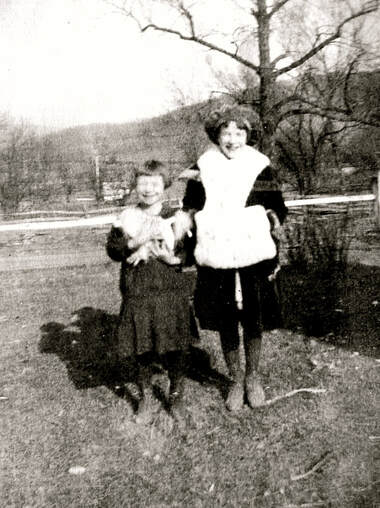
Wednesday, October 30, 1918. Cool and rainy. Mother churned. We received a letter from Mr. Angle expressing his sympathy. His letter also contained a check for $50.00 being sent as a appreciation for what father had done for him. He also said father was one of his best friends and most faithful man he had ever had in his employ. He expressed his regret at not being able to be present at the funeral, being in Baltimore at the time on business and not returning until Friday.
Life went on for the Hays family, but the death of the family's primary breadwinner led to many challenges and changes.
Sunday, November 3, 1918. Fair and cool. Herbert, Genevieve, and I took a walk around by Harmony this morning. We arrived home about four o’clock and very tired and hungry. Mr. Day brought grandma down to visit us a few days. We were very glad to see grandma, as we have had very few callers lately and the home was becoming rather lonely. Mother and grandma talked far into the night after we had retired.
Monday, November 4. 1918. Cool and cloudy. Grandma and I patched stockings all afternoon. Mother churned and called Mr. Bittle over the phone and engaged five barrels of corn at six dollars a barrel. Mother received a letter from Ohio telling of the death of her cousin Albert Eccard who died from the flu.
Tuesday, November 5, 1918. Cloudy and dreary, raw winds, and no sunshine. Grandma went home and Genevieve and Elizabeth went along to visit her a few days. Miss Buhrl Dubel called and engaged Herbert to make the fire [at the school] during the winter for which he is to receive the munificent price of $1.25 per month. We spent the day patching stockings and other clothing for school.
Wednesday, November 6, 1918. Clear and bright sunshine. Mother washed a large wash and I [swept] the school house and aired it out, getting ready for school next week.
Thursday, November 7, 1918. Clear and rather warm. I ironed and mother and Herbert buried cabbage. Mother sent a Larkin’s order off for $13.00 worth of products. Mrs. Horine called up and would have liked for mother to come down and paper a room for her, but on account of their family having the flu she didn’t go. Mr. Gaver brought us a hundred bundles of fodder.
During the next year, Carlotta’s mother took on more and more work for people outside the home, doing washing for one neighbor or wallpapering rooms for another. It also seems that the family was looking to move. However, at least in the short run, things got back to normal.
Monday, November 11, 1918. Clear and cool. School opened this morning. Mother washed. Mr. and Mrs. Umberger called during the afternoon. Mrs. Umberger also brought mother a bouquet of chrysanthemums, which were lovely. Today, the Kaiser [Wilhelm II of Germany] signed the armistice, thus ending the world war. All other countries having given up some time ago.
School was back in session and the war was over. Carlotta reported sporadic cases of the flu through the end of 1918, but in the Middletown Valley, the epidemic was all but concluded.
Second Diary
In her second diary we learn that Carlotta graduated from grammar school in May 1919. During that summer, she was hired for $1.50 a week to help Mr. and Mrs. Leatherman. She lived with them, helped with house and garden work, as well as took care of the Leathermans' baby. In one entry, she reported that they “rise about quarter after four [a.m.].” She mentions washing, hoeing the garden, planting, canning, baking, and whitewashing the fence. Her sister Elizabeth worked picking berries in Boonsboro and kept selling the newspaper Grit.
In September 1919, Carlotta attended high school in Middletown. Initially, she would walk to Myersville with friends and then take the “car” (trolley) to Middletown. The logistics of this were sometimes difficult, and as the days got shorter and colder her mother arranged for her to board in Middletown during the week with Mrs. Coblentz. On October 7, the family moved to a house near Middlepoint. Carlotta did not stay at Middletown High School long. Her grandfather died and on November 22, she reported that she was going to stay with her grandmother and attend high school in Wolfsville. Her first day there was December 1. Fortunately, her close friend Hazel also attended the same school. Carlotta wrote, “The girls treat us very well. Hazel and I sit on the boys' side.”
The second diary ends on December 31, 1919.
The 1920 Census enumerated Carlotta with her grandmother in Wolfsville, but she eventually returned to, and graduated from, Middletown High School. She obtained a teaching job after graduation. According to her obituary in the Valley Register, Carlotta started teaching in the fall of 1923. She first taught at Wolfsville then was transferred to the one-room Valley View School. Carlotta returned to Wolfsville from 1926 to 1935, teaching at the Sensenbaugh School.
Afterwards, Carlotta was transferred to Middletown Elementary School where she spent the next 39 years. She received a B.S. in 1945 from Towson State College and also attended both Hood College and Western Maryland College (now McDaniel). She was awarded a Master’s Degree from Columbia University in 1950. During her 50 years of teaching she never missed a day of school. She retired in June 1974.
In 1920, Carlotta’s mother moved to Braddock Heights and opened a boarding house. This was a common way for widows to make a living and support their families. In an interview in the Frederick News Post in 1975, Carlotta said that at one point, her mother became so successful that she supervised four boarding houses on Maryland Avenue, as well as all the cooking. On a Sunday afternoon during the heyday of Braddock Heights, it was not unusual for Josephine to oversee the feeding of more than 300 diners, according to Carlotta.
Carlotta lived a life full of interests and hobbies. She resided on Hays Avenue in Braddock Heights and was an avid gardener. Her home was full of plants, both inside and out, and she kept a vegetable garden most of her life. In addition to raising plants and gardening, Carlotta was a lifelong collector. Her home was full of antiques and artwork, hand-hooked rugs, Tiffany Lamps, Currier and Ives prints, antique quilts, collections of china and silver, as well as gold and silver coins and clocks by John Fessler, an early Frederick clockmaker. In addition to collecting, she travelled extensively, making several trips to Europe.
Carlotta Hays died in her home in Braddock Heights on August 11, 1986, at the age of 83, and was buried at St. Mark's with her parents. After her death, the auction of her collections took place over four weekends.
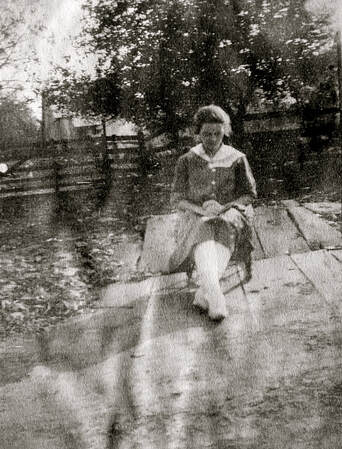
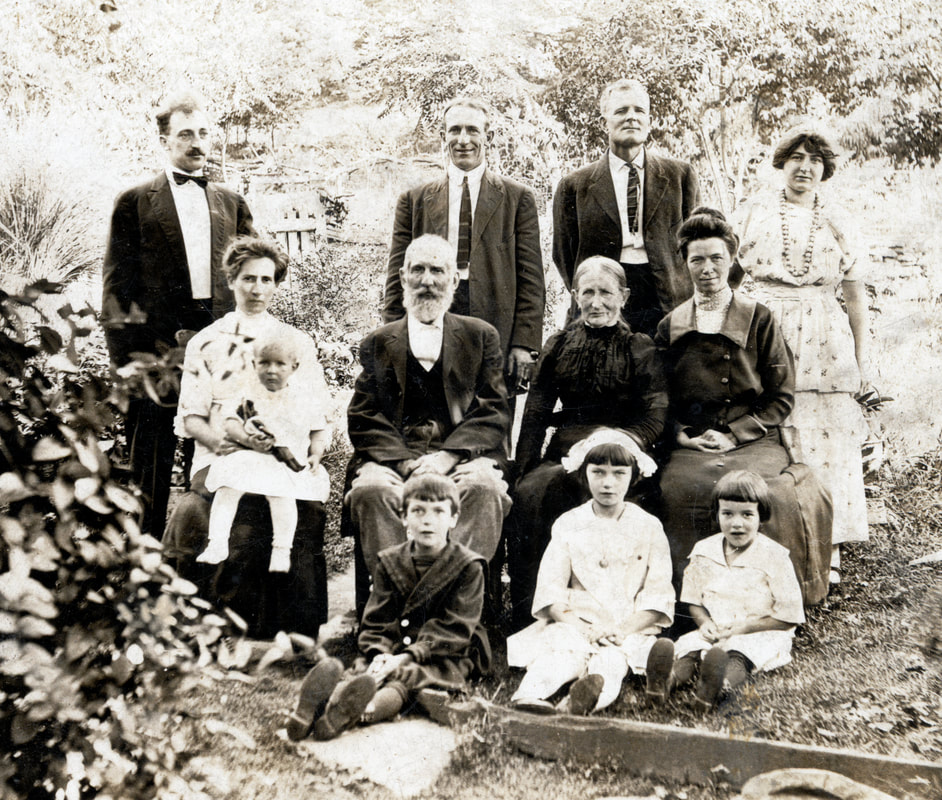
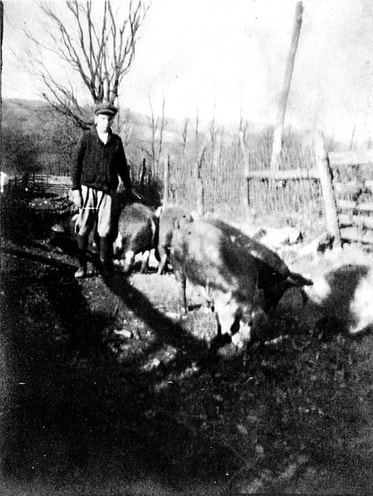
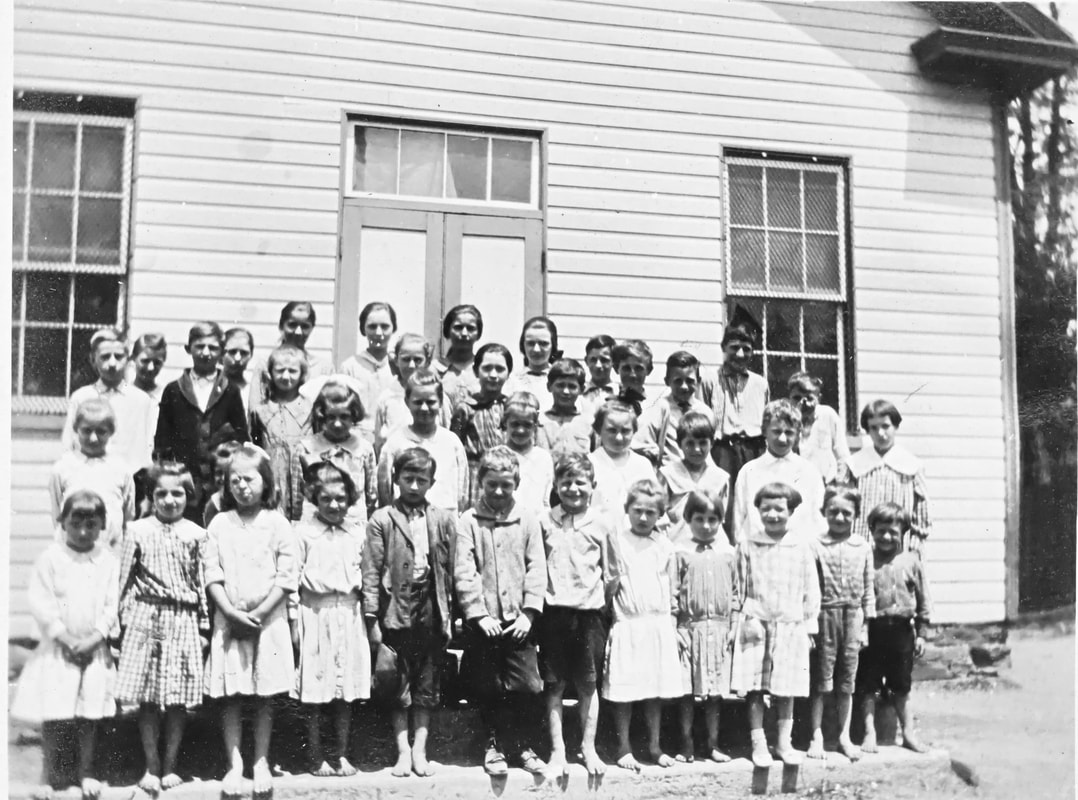
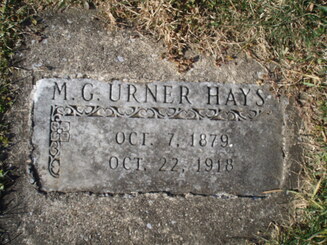
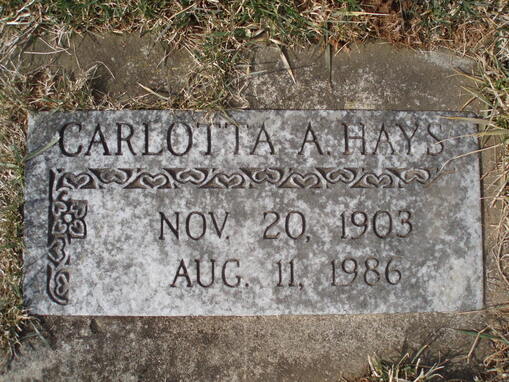
 RSS Feed
RSS Feed